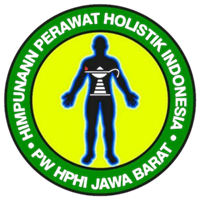Parental Mediation to Reduce Device Addiction in Children with Emotional Disorders: A Case Study
DOI:
https://doi.org/10.56359/gj.v5i1.338Keywords:
emotional disorders, gadget addiction, parental mediationAbstract
Objective: This case study aims to provide direct nursing care to children experiencing emotional disturbances due to gadget addiction through parental mediation in the city of Banjar.
Method: The research methodology employed in this study is descriptive analysis, utilizing a case study approach to provide an objective assessment of the client's condition. The study focused solely on one subject, Patient An. R, who experienced emotional issues stemming from gadget addiction in Banjar City. The initial day involved conducting an assessment to determine the extent of gadget addiction and the client's emotional disturbances, educating the family on parental mediation techniques, and conducting a physical examination, which revealed no issues. Subsequent days involved monitoring changes in the client's device use intensity and emotional state. The final day assessed the effectiveness of the parental mediation intervention implemented by the family through data collection methods including interviews, observation, physical examinations, and documentation reviews.
Results: The findings from the case study review phase indicated that the client exhibited emotional disturbances due to gadget addiction. The intervention utilized to reduce gadget addiction involved parental mediation, employing parental strategies to monitor device usage. Over a 3-day period, the child was encouraged to reduce daily device use duration, resulting in a successful reduction from 3-5 hours per day to 1-2 hours per day.
Conclusion: Following the 3-day parental mediation intervention from June 18–20, 2023, the client's device use intensity aligned with the desired outcomes. Positive changes observed included decreased behavior of ignoring family members, enhanced communication among family members, and a reduction in aggressive behavior. Evaluation results indicated the resolution of one nursing diagnosis as planned. Despite the client's emotional disorder due to gadget addiction, the intervention had a positive impact, significantly reducing device usage from 3-5 hours to 1-2 hours per day.
Downloads
References
Ati, Aster Pujaning et al. 2022. “Penyuluhan Penggunaan Gawai Untuk Mencegah Gangguan Belajar Pada Siswa.” Jurnal Pengabdian UntukMu NegeRI 6(1): 90–95.
Chaidirman, Chaidirman, Diah Indriastuti, and Narmi Narmi. 2019. “Fenomena Kecanduan Penggunaan Gawai (Gadget) Pada Kalangan Remaja Suku Bajo.” Holistic Nursing and Health Science 2(2): 33–41.
Fadli, Muhammad Rijal. 2021. “Memahami Desain Metode Penelitian Kualitatif.” Humanika, Kajian Ilmiah Mata Kuliah Umum 21(1): 33–54.
Firmansyah, A., Mulyati, N. W., & Setiawan, H. (2023). Family Empowerment Program to Improve Quality of Life in Thalassemia Patient: A Case Study. Genius Journal, 4(2), 346–353. https://doi.org/10.56359/gj.v4i2.268
Jufrida, Jufrida, Fibrika Rahmat Basuki, and Wawan Kurniawan. 2021. “Agen Penggerak Permainan Tradisional: Solusi Mengurangi Kecanduan Gadget Pada Anak.” Jurnal Surya Masyarakat 4(1): 1–9.
Koerniawan, Dheni, Novita Elisabeth Daeli, and Srimiyati Srimiyati. 2020. “Aplikasi Standar Proses Keperawatan: Diagnosis, Outcome, Dan Intervensi Pada Asuhan Keperawatan.” Jurnal Keperawatan Silampari 3(2): 739–51.
Makarau, Nur Istiana, and Suyadi Suyadi. 2022. “Peran Orang Tua Dalam Mendampingi Kegiatan Bermain Gawai Pada Anak.” Jurnal Golden Age 6(1): 32–40.
Martini, Sri, Sri Endriyani, and Ayu Febriani. 2021. “Manajemen Pengendalian Marah Melalui Latihan Asertif Klien Skizofrenia Dengan Masalah Perilaku Kekerasan.” JKM: Jurnal Keperawatan Merdeka 1(2): 302–8.
Melinda, Michelle, and Wenny Savitri S Pandia. 2020. “Perbedaan Parental Mediation Pada Ibu Bekerja Dan Tidak Bekerja, Yang Memiliki Anak Usia Dini.” Provitae: Jurnal Psikologi Pendidikan 13(1): 44–65.
Nurhasanah. 2020. “Asuhan Keperawatan Pada Klien Dengue Hemorrhage Fever (Dhf) Dengan Masalah Kekurangan Volume Cairan.” C.
Nurmala, Sukma, and Ali Mashuri. 2021. “Pentingnya Mediasi Orang Tua (Parental Mediation) Untuk Menangani Penggunaan Gawai (Gadget) Pada Anak Sekolah Dasar.” Researchgate. Net.
PPNI, Tim Pokja SIKI D P P. 2018. “Standar Intervensi Keperawatan Indonesia.”
Prihatiningsih, Erika, and Yuni Wijayanti. 2019. “Gangguan Mental Emosional Siswa Sekolah Dasar.” HIGEIA (Journal of Public Health Research and Development) 3(2): 252–62.
Primayana, Kadek Hengki, and Putu Yulia Angga Dewi. 2020. “Hubungan Pola Asuh Demokratis Dan Intensitas Penggunaan Gawai Pada Anak Usia Dini.” Jurnal Obsesi: Jurnal Pendidikan Anak Usia Dini 5(1): 710–18.
Pristinella, Debri, and Revina Desiyanthi. 2021. “Gambaran Parental Mediation Ibu Pada Pengguna Internet Usia Remaja.” MANASA 10(2): 107–20.
Puspita, Shinta Mutiara. 2019. “Kemampuan Mengelola Emosi Sebagai Dasar Kesehatan Mental Anak Usia Dini.” SELING: Jurnal Program Studi PGRA 5(1): 85–92.
Setianingsih, S. 2018. “Dampak Penggunaan Gadget Pada Anak Usia Prasekolah Dapat Meningkatan Resiko Gangguan Pemusatan Perhatian Dan Hiperaktivitas.” Gaster 16(2): 191–205.
Setiawati, Yunias, and Izzatul Fithriyah. 2020. Deteksi Dini Dan Penanganan Kecanduan Gawai Pada Anak. Airlangga University Press.
Sinaga, Nancy Clara. 2020. “Study Deskriptif Kuantitatif Gambaran Parental Mediation Terhadap Anak Dalam Menggunakan Internet.”
Suhanda, S., Putri, S. Y. S., & Setiawan, H. (2023). Coldpack Intervention to Alleviate Hematoma in Post-Percutaneous Coronary Intervention Patient: A Case Study. Genius Journal, 4(2), 363–375. https://doi.org/10.56359/gj.v4i2.311
Wulandari, Herni, Dessy Hasanah Siti Asiah, and Meilanny Budiarti Santoso. 2021. “Pengawasan Orangtua Terhadap Anak Usia Prasekolah Dalam Menggunakan Gawai.” Jurnal Penelitian dan Pengabdian Kepada Masyarakat (JPPM) 2(1): 46–55.
Zebua, Friderikus. 2020. “Pentingnya Perencanaan Dan Implementasi Keperawatan Terhadap Kepuasan Pasien Di Rumah Sakit.”
Downloads
Published
How to Cite
Issue
Section
License
Copyright (c) 2024 Andan Firmansyah, Julia Putri

This work is licensed under a Creative Commons Attribution 4.0 International License.















